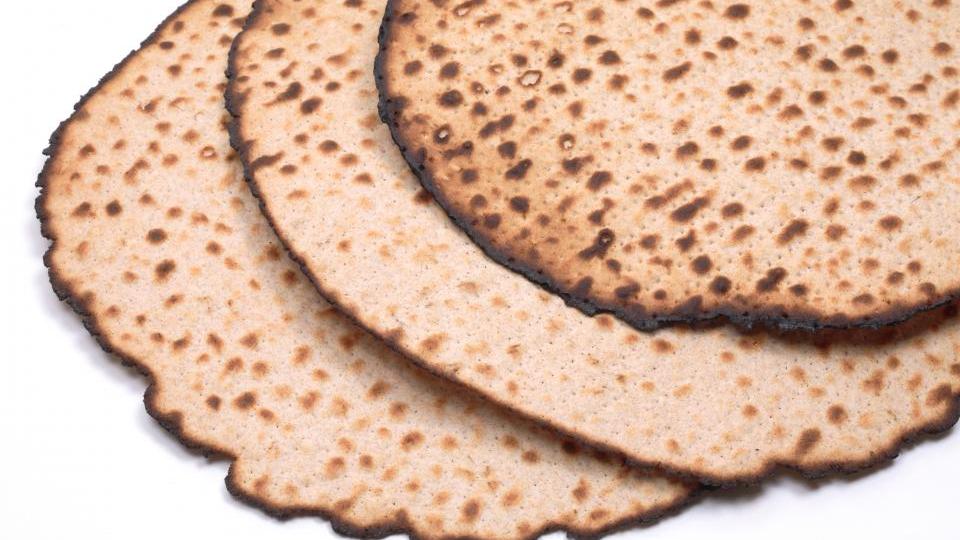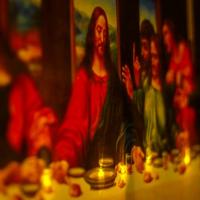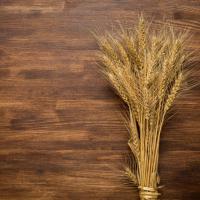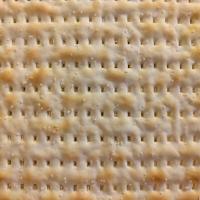Beth Immanuel is a friendly and welcoming community. Click here to learn what to expect when you visit.

Passover Overview
Shabbat Hagadol: The Great Sabbath
The Sabbath before Passover is called Shabbat Hagadol and special because this is the day when, on the first Passover, the lamb was commanded to be taken into each family’s home. Exodus 12:3 records that this event happened on the 10th of Nissan, which is traditionally viewed as the Sabbath before the first Passover.
Observance of Shabbat Hagadol in a synagogue service includes special hymns and Psalm readings relating to Passover, reciting a small part of the Haggadah, and studying the laws of Passover.
Removal of Leaven
Final removal of leaven occurs on the night before seder night. That means, during the daytime it will be the 13th of Nissan, then the sun sets and it becomes the 14th of Nissan.
For more specific information on leaven and how to remove it, please read our "Leaven and Passover" article.
Seder Night
Seder night is the 15th of Nissan. If you see a calendar that simply indicates “Passover” or “Passover begins,” then seder night is the previous evening, since the day begins at sunset. If it is labeled, “Erev Pesach” or “Passover begins at sunset,” then seder night is on that very evening.
There is a traditional second seder night, on the 16th of Nissan. All of the holidays are doubled in the diaspora (areas outside the land of Israel) to account for calendar discrepancies.
The Week of Unleavened Bread
Leaven is prohibited from the morning of the 15th of Nissan through the 22nd of Nissan at sunset. During the intermediate days of Passover, much (but not all) work is resumed. At least one piece of matzah should be eaten each day to fulfill the commandment to eat unleavened bread. It is also customary to drink at least one glass of wine or grape juice each day in honor of the holiday.
Counting the Omer
According to Leviticus 23:15-16, we are commanded to count the 49 days from the Sabbath of Passover to the holiday of Shavu’ot, or Pentecost.
And you shall count for yourselves from the day after the Sabbath, from the day that you brought the sheaf (omer) of the wave offering: seven Sabbaths shall be completed. Count fifty days to the day after the seventh Sabbath; then you shall offer a new grain offering to the LORD.
This counting begins the second day of Passover, that is, the night of the second seder. Since work is prohibited on the first day of Passover, it is associated with the Sabbath mentioned above. The word “Sabbath” need not refer to the seventh day, as holidays (Yom Tov) are also sometimes called Sabbaths.
The timing of counting the Omer is not a matter of controversy in most of the Jewish community. For believers it has become so, because it could relate significantly to the timing of the Messiah’s resurrection.
The Passover sacrifice (and its timing) is related to the timing of the Messiah’s death. As it turns out, a minor holiday occurs during the week of the feast of Unleavened Bread:
Speak to the children of Israel, and say to them: “When you come into the land which I give to you, and reap its harvest, then you shall bring a sheaf of the firstfruits of your harvest to the priest. He shall wave the sheaf before the LORD, to be accepted on your behalf; on the day after the Sabbath the priest shall wave it.”(Leviticus 23:10-11)
The “day after the Sabbath” again becomes significant because on it there occurs a holiday that involves bringing the firstfruits of the (barley) harvest to the Temple. It coincides remarkably with the Messiah’s resurrection, which occurred on that very day. The Messiah is called the “firstfruits” in Scripture (1 Corinthians 15:20-23) in reference to His resurrection.
Last Day of Passover
On the Seventh (and Eighth) Day of Passover we have another special Sabbath (Yom Tov). This is traditionally considered the day that Israel passed through the Red Sea. At Beth Immanuel, we celebrate a special Meal of Messiah on the last day of Passover.
More Messianic Passover Teachings
Want more about Passover from a Messianic Jewish perspective? Check out our Passover page!




